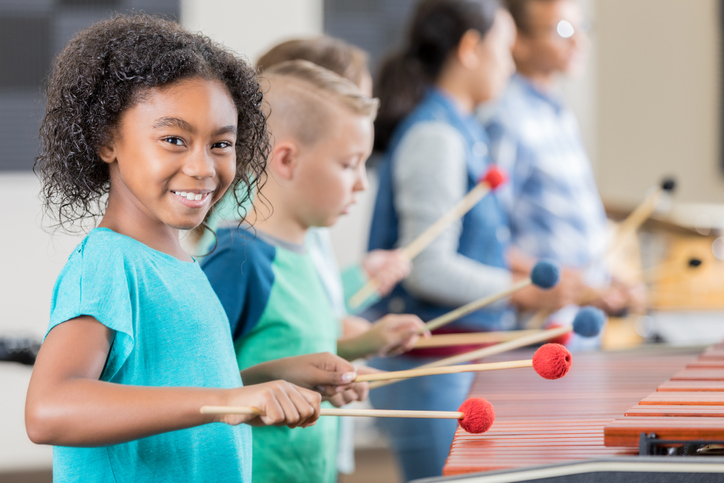Advocating for Music in Schools

4 minute listen
While #CanDoMusic offers practical resources to keep music in schools, there is often a major obstacle to adopting these: convincing your school’s senior leadership team.
Here is our advice for making the case for a music education that is creative, imaginative and inclusive.
Inclusive value versus cost
If you want to persuade your decision-makers, you can start by helping them see that music lifts everyone in the school and not only those studying it. In other words, you want them to appreciate the value of expenditure on music rather than simply thinking about the cost implications.
While that’s often easier said than done, here are five types of evidence you can easily use to make your case:
- Stories from pupils, parents and your local community to make your point in their words.
- Evidence to prove that all pupils have opportunities to enjoy formal and informal concerts in your school.
- Data on the involvement (and impact upon) children who are; looked after, entitled to pupil premium support and those with Special Educational Needs and Disabilities.
- Expertise from your local music education hub or service.
- Academic studies – for example researchers have shown that studying music helps students perform better in their other classes.
Music matters beyond the classroom – employability and skills
Taking a step back from the school setting, there are other powerful arguments why SLT should not underestimate music’s impact on young people. An education that includes arts subjects can be a huge benefit in the jobs market. For example, the UK’s Creative Industries contribute almost £13 million every hour and are the fastest growing part of the UK economy. But even beyond that sector, employers appreciate the importance of hiring creative and ‘intellectually curious’ thinkers. Obviously, this is not just limited to music, so there is an opportunity to work with teachers of other creative subjects to try to influence your SLT collectively and advocate together. So, while there are no guarantees in an increasingly uncertain jobs market, studying arts subjects in a balanced curriculum is clearly an advantage amidst the volatility.
Ultimately once the potential of music is unleashed, there’s really no limits to what it can do to help pupils. Schools play an important role in supporting positive mental health. Music is a subject that provides a chance for creative expression and collaboration so will help pupils develop the social skills to thrive in whatever they choose to do with their life. But these positive impacts are especially pertinent in light of Education Policy Institute research. That showed that poorer students are 20.1 months behind their wealthier peers at GCSE Music on average, while disadvantaged students are 38% less likely to study it at all. No pupil should be deprived of these opportunities and we must not deprive others of the talent that could be uncovered.
Young people love music
Perhaps the best argument for music education is also the most simple. Pupils love how engaging and inspiring it is. That is why the ISM, Music Mark and the Music Teachers’ Association launched #CanDoMusic. We are celebrating the innovation of educators with free resources and ensuring that music is at the heart of school life. All educators want to provide a rich learning experience that prepares young people for life. Music must be part of that.